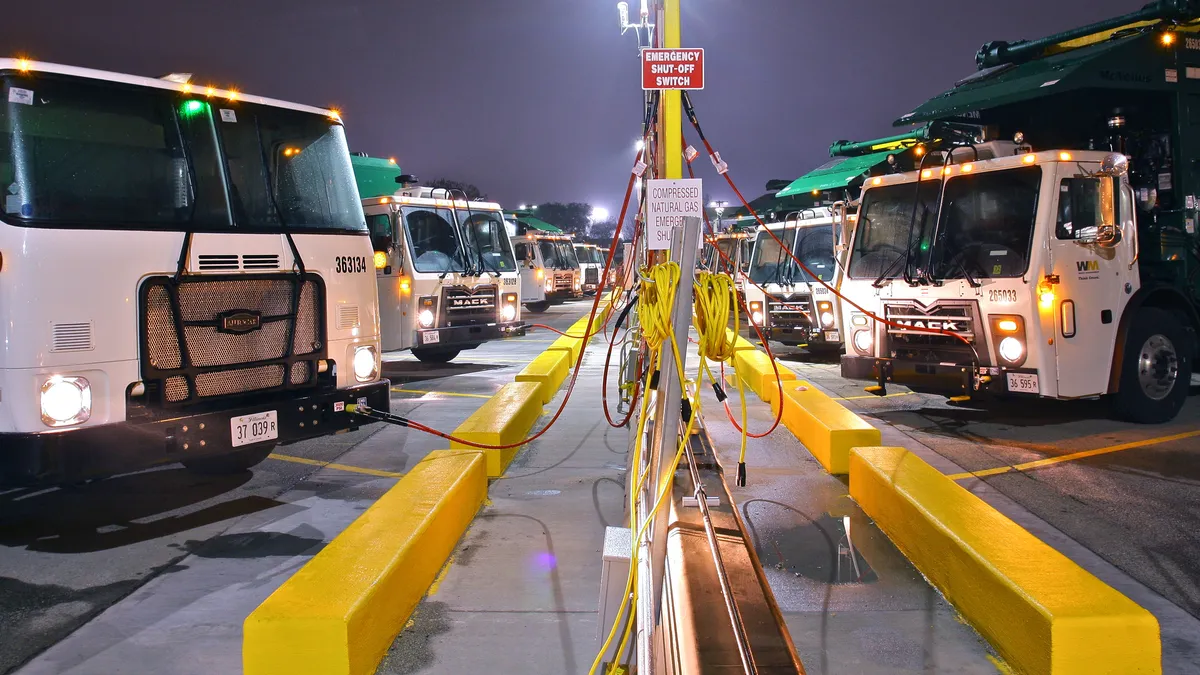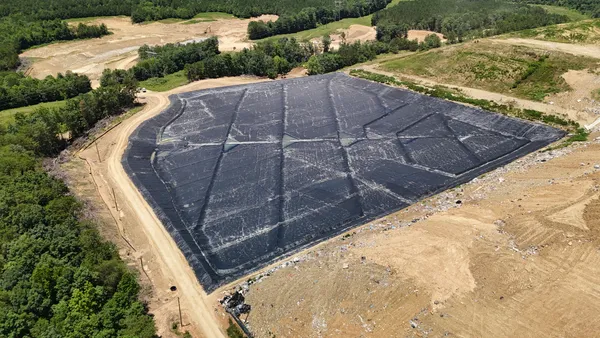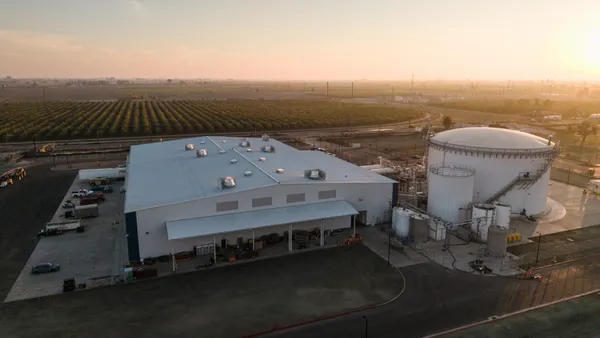UPDATE: October 30, 2020: Waste Management has completed the acquisition of Advanced Disposal Services for $4.6 billion, following approval from the U.S. Department of Justice (DOJ) and Federal Trade Commission. Regulatory approval occurred after agreement was reached on a $863.5 million divestiture package spanning 10 states. The sale of those assets to GFL Environmental has also been completed.
The news caps off a more than 18-month process and adds an estimated 3 million new residential, commercial and industrial customers for Waste Management across 16 states.
“The acquisition expands Waste Management’s reach and positions us for significant earnings and cash flow growth. The hard work our integration teams have done has prepared us to provide a seamless transition for employees and customers," said CEO Jim Fish in a statement. “With integration getting underway, the team is focused on a strong finish to 2020."
Dive Brief:
- Oct. 23: The Antitrust Division of the DOJ filed a civil suit today in the District Court for the District of Columbia, along with a proposed settlement, that paves the way for Waste Management to finally close its $4.6 billion acquisition of Advanced Disposal Services.
- The proposed settlement requires the divestiture of 15 landfills, 37 transfer stations, 29 hauling facilities, over 200 waste collection routes and other assets across 10 states. GFL Environmental is the planned buyer of a package previously valued at $863.5 million.
- Attorneys general from Florida, Illinois, Minnesota, Pennsylvania and Wisconsin joined the suit – as all of their states include markets with competitive concerns. Divestitures are also required in Alabama, Georgia, Indiana, Michigan and South Carolina.
Dive Insight:
This long-awaited news marks a major milestone for a transaction DOJ said "presents the most significant consolidation in the waste industry in over a decade" and is Waste Management's largest in two decades.
The deal to acquire what was then the sector's fourth-largest player was first announced in April 2019. While the initial merger agreement included a divestiture cap of assets worth no more than $200 million in revenue, it quickly became clear the agency was expected to ask for much more than that and timing slipped on multiple occasions from when the parties originally expected to close.
The onset of the coronavirus pandemic was a further complicating factor earlier this year, affecting revenue for all players including Advanced. The combination of those factors led to a price cut and amended agreement in June – from $4.9 billion to $4.6 billion – which Advanced shareholders approved in August based on a share price of $30.30. The deal was still considered advantageous for Waste Management, given more than $100 million in projected synergies, as well as for Advanced which had limited options otherwise.
Most recently the deal's expected closure timing was delayed into the fourth quarter due in part to the inclusion of incremental language at the request of attorneys general from Illinois and Wisconsin, as reported by CTFN – which recently forecasted the DOJ news would be coming this week.
As previously shown in other major industry transactions, the DOJ's primary focus for competitive concerns in solid waste deals is smaller container commercial waste (SCCW) and MSW disposal assets. According to the agency, "the transaction would likely cause harm" to competition in dozens of markets by limiting the number of viable players since the companies "compete aggressively" against each other. This could affect smaller competitors, as well as municipal or commercial customers.
Issues were identified for SCCW in 33 geographic markets across Alabama, Florida, Georgia, South Carolina, Minnesota and Wisconsin. The transaction could cause similar harm to competition for MSW disposal across 24 geographic markets in Alabama, Florida, Georgia, Illinois, Indiana, Michigan, Pennsylvania and Wisconsin.
The agency's proposed divestitures are expected to remedy these concerns. While the potential divestitures sparked interest from more than 50 parties, GFL was among the few that had both the financial resources and the limited footprint in most areas to allay competition concerns. Following this transaction, the Canadian company will have a major U.S. footprint and pick up a substantial position in areas such as Wisconsin. Analysts have recently said it's possible GFL could choose to sell some of the package's more ancillary assets in the future, but no details have been confirmed.
As required by the Tunney Act, DOJ will publish all relevant documents in the Federal Register and accept public comment for 60 days. Based on recent precedent on other deals, and confirmation from multiple sources, it's expected Waste Management and the other parties will close much sooner than that.















